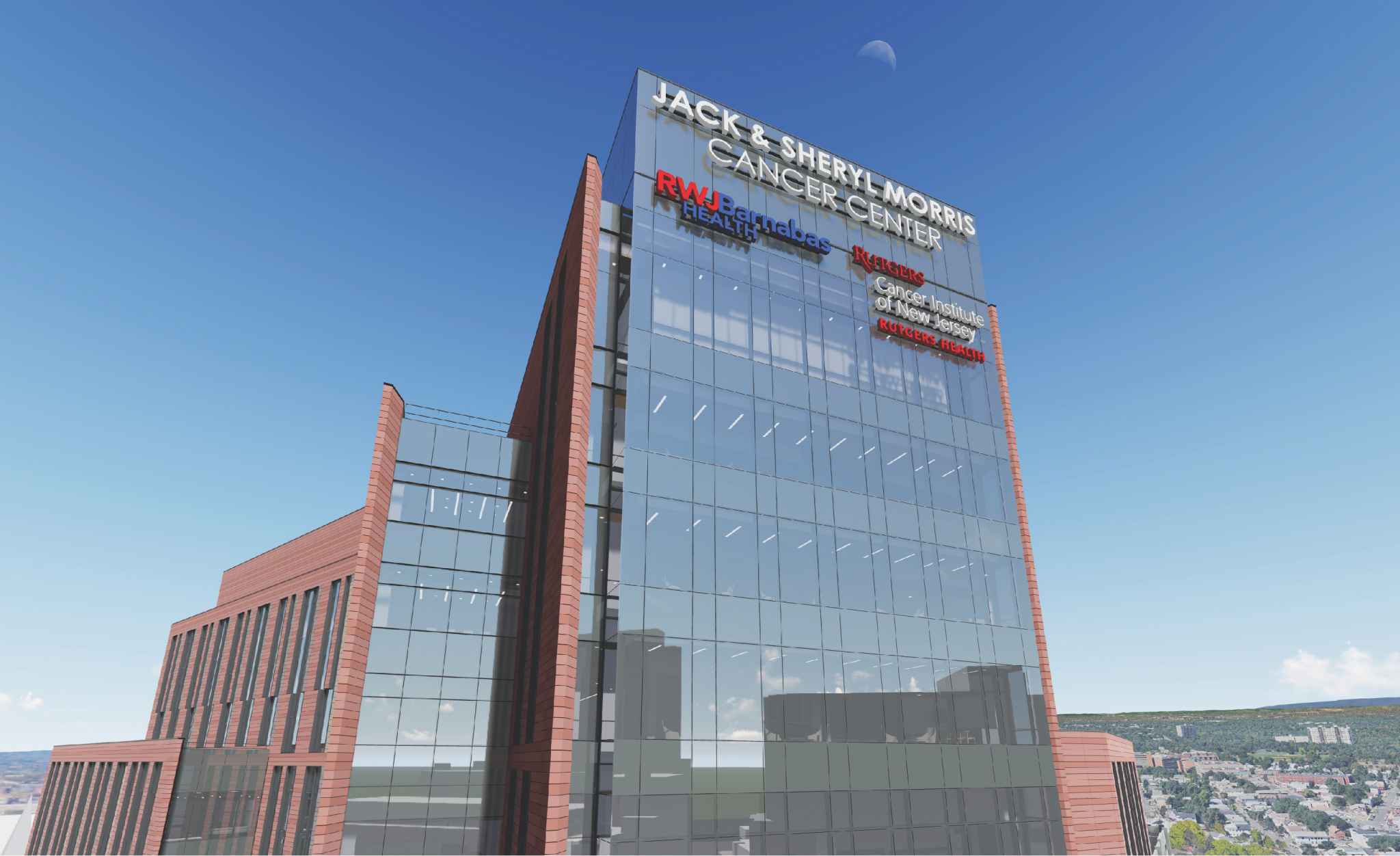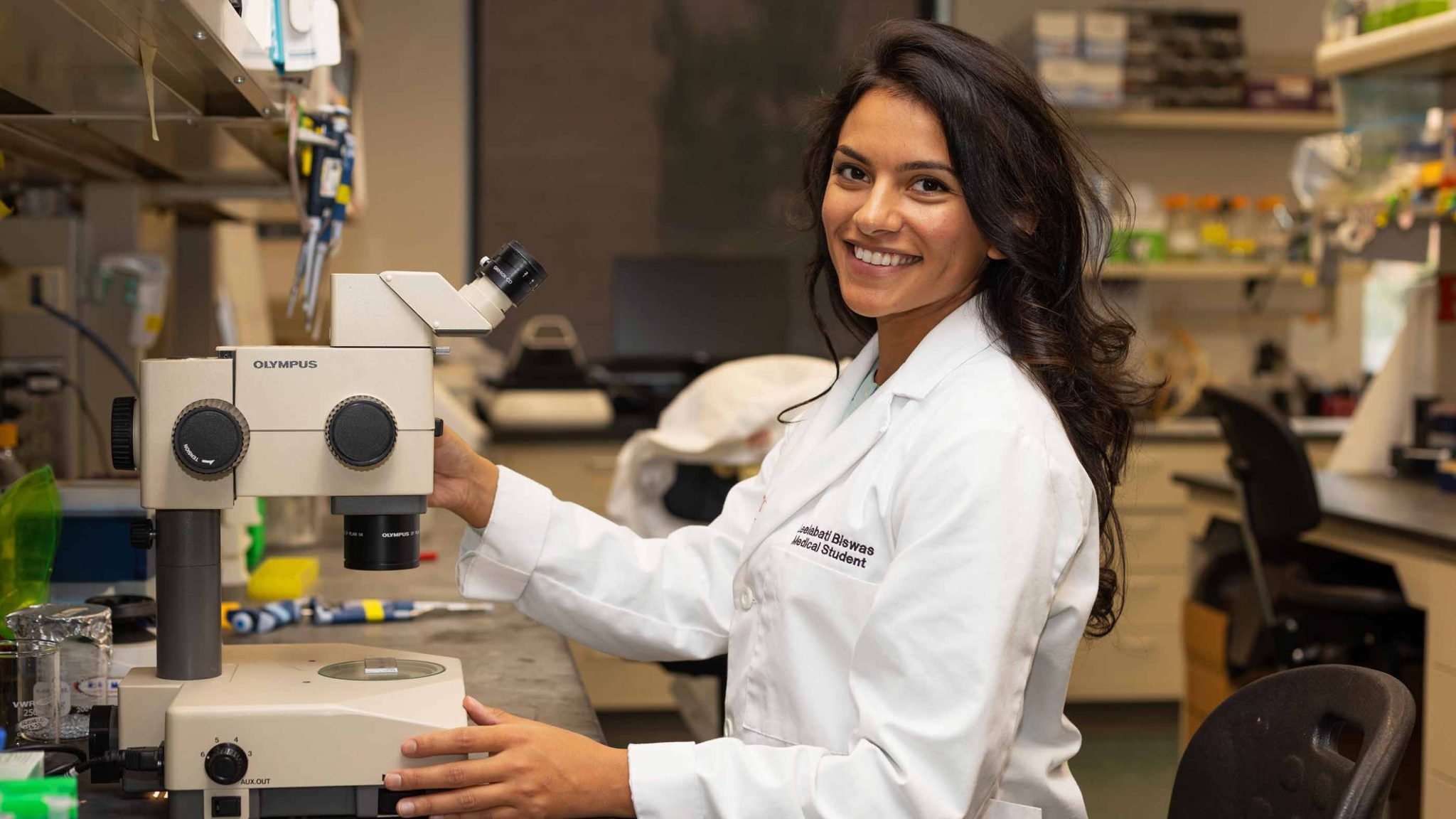With nearly 7,000 students across eight schools and an array of centers and institutes, Rutgers Biomedical and Health Sciences (RBHS) leverages the university’s clinical, behavioral, public health, laboratory, engineering, and social science capabilities to train health professionals and researchers and expand access to quality care. RBHS is among the few academic health centers in the U.S. that include dental, graduate, health professions, medical, nursing, pharmacy, and public health schools on one campus.

As the state’s largest academic health center, employing 1,300 clinical providers and treating 2.8 million patients annually, RBHS scholars spark the ideas that become cures, train the innovators and caregivers of tomorrow, and help keep our communities and the world well.
Affiliations with RWJ Barnabas Health and the VA New Jersey Healthcare System provide RBHS with access to patients for translational and clinical research while bringing discoveries from the bench to the bedside. Proximity to New Jersey’s extensive biotechnology and pharmaceutical industry, along with a research budget of more than $450 million, help ensure that RBHS serves as an engine for health care discovery, innovation and economic development.
Cancer Care and Research
As New Jersey’s only National Cancer Institute-designated Comprehensive Cancer Center, Rutgers Cancer Institute of New Jersey in partnership with RWJ Barnabas Health provides patients access to the latest treatments including clinical trials. Patient care and research are at the center of the mission.
The institute’s Duncan and Nancy MacMillan Cancer Immunology and Metabolism Center of Excellence is aiding researchers in their efforts to understand and leverage the human immune response to treat cancers that don’t respond to standard therapies.
The Center for Pediatric Cancer and Blood Disorders Research, supported by $10 million in state funding annually, enables investigators to broaden scientific understanding, increase survival, rates and improve quality of life for children with cancer.
When it opens in early 2025, the Jack and Sheryl Morris Cancer Center will provide patients with state-of-the-art outpatient and inpatient care. Accompanied by research laboratories, retail space, and services devoted to patient wellness, it will be the first of its kind cancer facility in New Jersey.
Uterine Cancer and 9/11
Following lobbying by researchers at the Rutgers’ Environmental and Occupational Health Science Institute, uterine cancer was added to the World Trade Center (WTC) Health Program’s list of WTC-related health conditions. Women who worked as responders at Ground Zero and those who lived or worked nearby will receive full coverage from the WTC Health Program for uterine cancer treatment. They also will be able to seek compensation from the September 11th Victim Compensation Fund.
Coronavirus Response
Rutgers is leading the fight against COVID-19 with innovations in clinical, biomedical, and social science research. At the Center for COVID-19 Response and Pandemic Preparedness (CCRP2), researchers work to create safe protocols for handling the virus and testing for new variants, while conducting clinical trials on vaccines in partnership with private and public organizations.
Located within the Rutgers Institute for Infectious and Inflammatory Diseases (i3D), CCRP2 researchers are developing experimental models to help understand how COVID-19 triggers prolonged and debilitating symptoms – from persistent respiratory problems to impaired cognitive function – and have designed a new rapid test for detecting coronavirus variants in minutes. Population Health Study The New Jersey Population Health Cohort Study aims to understand how life events and stress affect health, particularly within historically disadvantaged groups, multigenerational families, and immigrant groups throughout the state. Led by the Institute for Health, Health Care Policy and Aging Research at Rutgers, the study will enroll up to 10,000 participants throughout New Jersey to deliver practical, actionable information for improving population health, well-being, and health equity.
Clinical and Translational Science
Based at the Rutgers Institute for Translational Medicine and Science, the New Jersey Alliance for Clinical and Translational Science (NJACTS) is facilitating the development of new therapies and treatments to improve health and healthcare in the state. A consortium coordinated by RBHS, NJACTS includes Rutgers and Princeton universities; New Jersey Institute for Technology (NJIT); medical, nursing, dental and public health schools; several regional hospitals; community health centers; outpatient practices;
industry; policymakers; and health information exchanges.
NJACTS is advancing translational science by training the next generation of researchers and by working to understand the heterogeneity of disease and responses to interventions in diverse individuals, communities, and populations.

Algorithms for the Heart
To improve the detection of heart disease, Rutgers and Heart Test Laboratories Inc., a medical technology company, is engaged in a multiyear collaboration to develop artificial intelligence-based electrocardiogram algorithms. The collaboration, based at the newly established Robert Wood Johnson University Hospital Center for Innovation, aims to accelerate innovation in cardiology, improve heart disease detection, and reduce overall health care costs.
Cancer Care for Botswana
A Botswana-Rutgers Partnership for Health breast cancer research initiative, which was recognized by President Joe Biden’s administration in a recent Cancer Moonshot update, aims to close the breast cancer screening gap in Botswana. The partnership is piloting a rapid “screen and treat” program that will evaluate evidence-based interventions for breast cancer screening in the Serowe region of the country. This effort is a collaboration involving the Office of the President of Botswana, Botswana’s Ministry of Health, the University of Botswana, and Rutgers Global Health Institute. A second program, Cancer Kitso, is an education and training initiative for health care workers in oncology in Botswana and other African countries.
A Better Microbiome
The Rutgers University Microbiome Program is a university-wide initiative focusing on fundamental microbiome science research, education, translational and clinical research, technology transfer, and community outreach. Housed at the Center for Advanced Biotechnology and Medicine, the program aims to develop academic, clinical, and industrial infrastructure to advance microbiome knowledge and practice in New Jersey and beyond.
Research Challenge Winner
One of many examples of exciting discoveries by our students comes from Leelabati Biswas. She is pursuing a dual doctoral degree in medicine and microbiology and molecular genetics (M.D.-Ph.D.) from Rutgers Robert Wood Johnson Medical School. Leelabati won the 2022 American Medical Association Research Challenge for her project, “Decoding Pregnancy Loss: Validating a Novel Genetic Biomarker of Poor Egg Quality.” The competition is the largest national, multispecialty medical research event for medical students, residents and fellows, and international medical graduates to showcase and present research.














